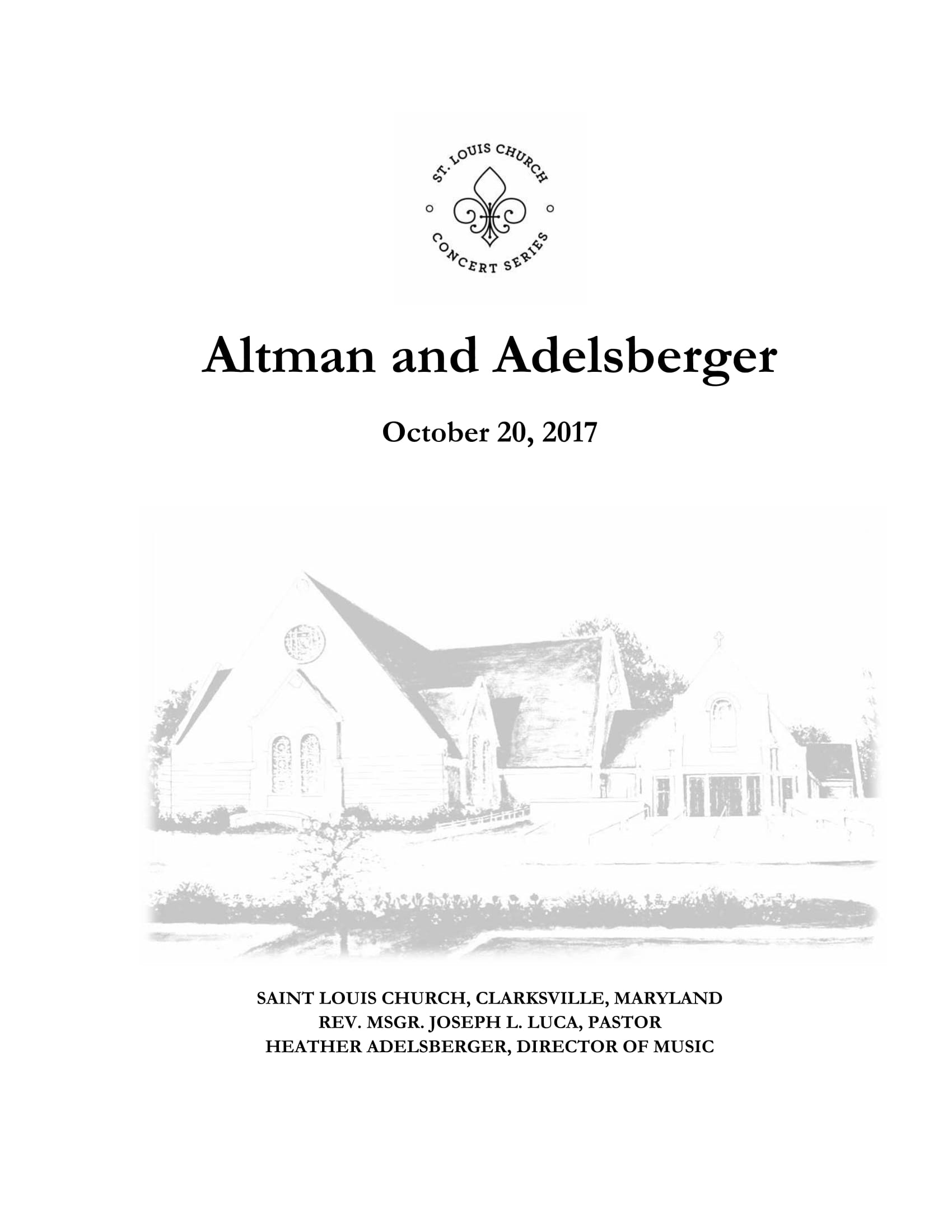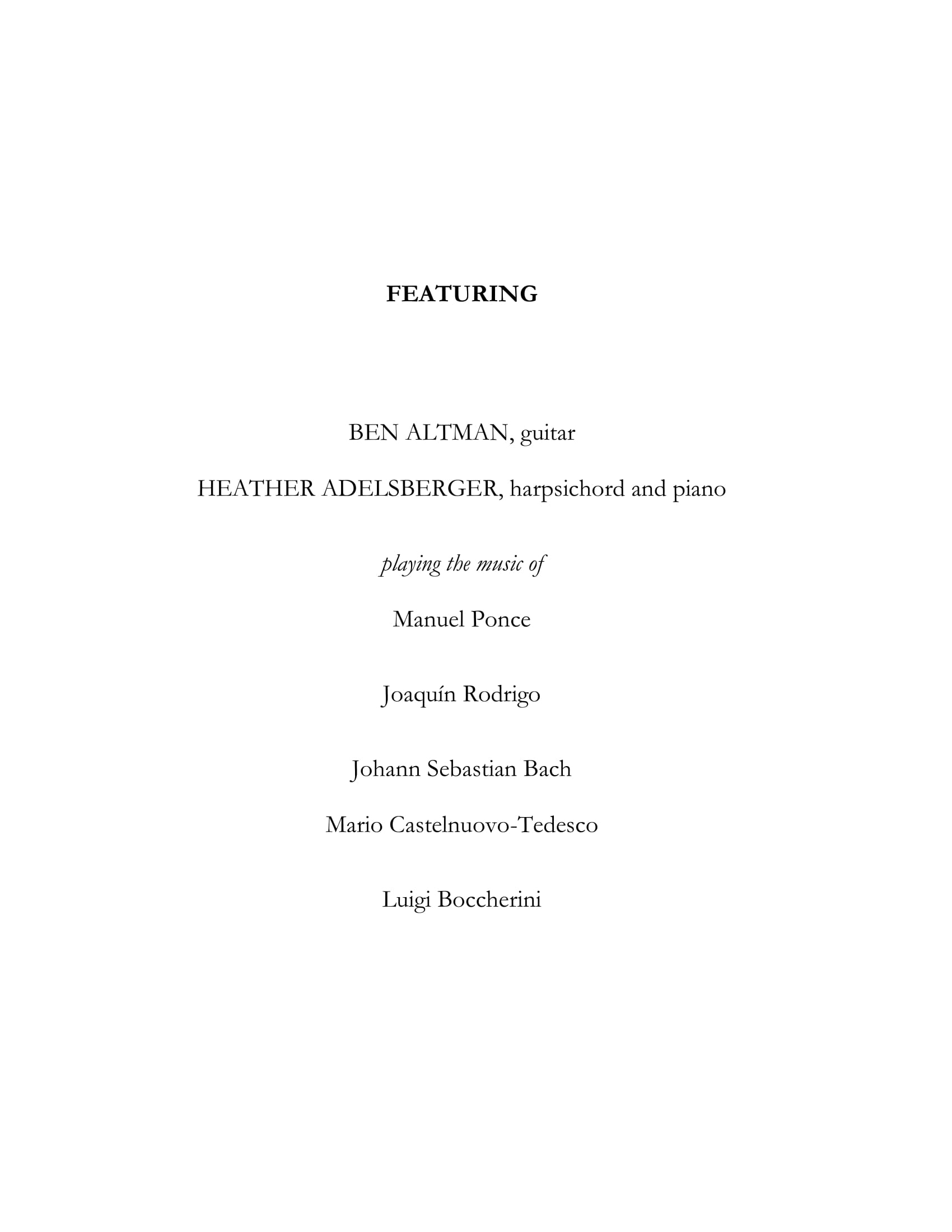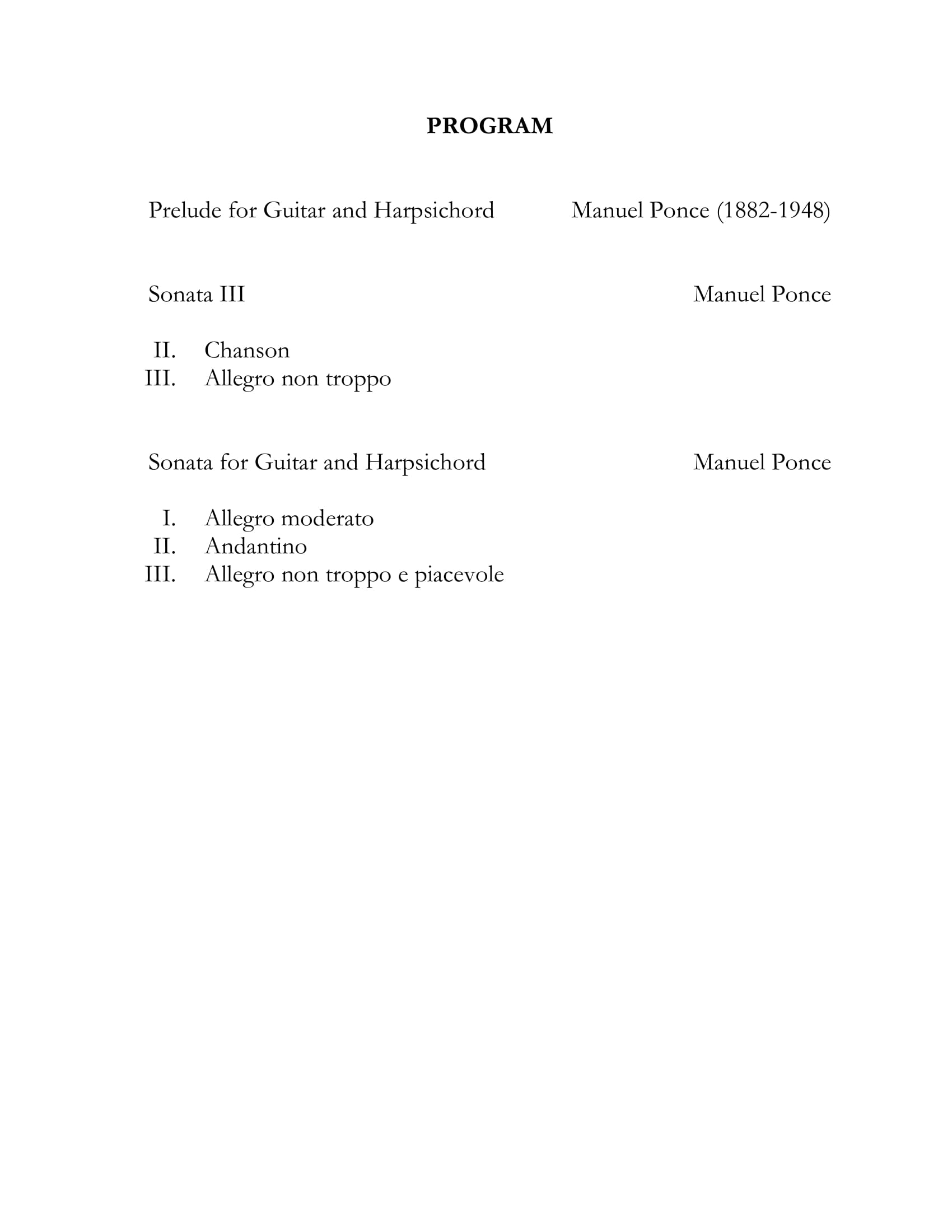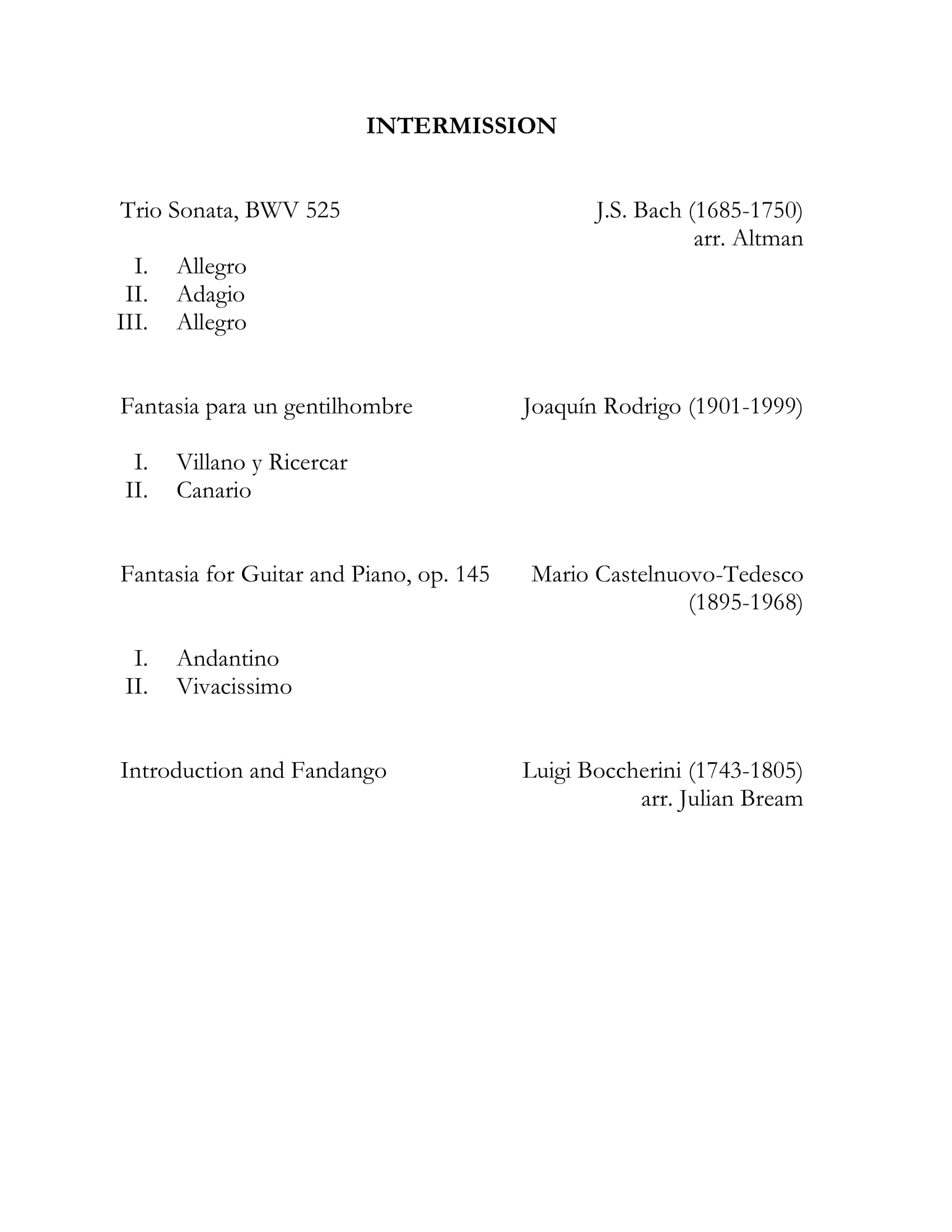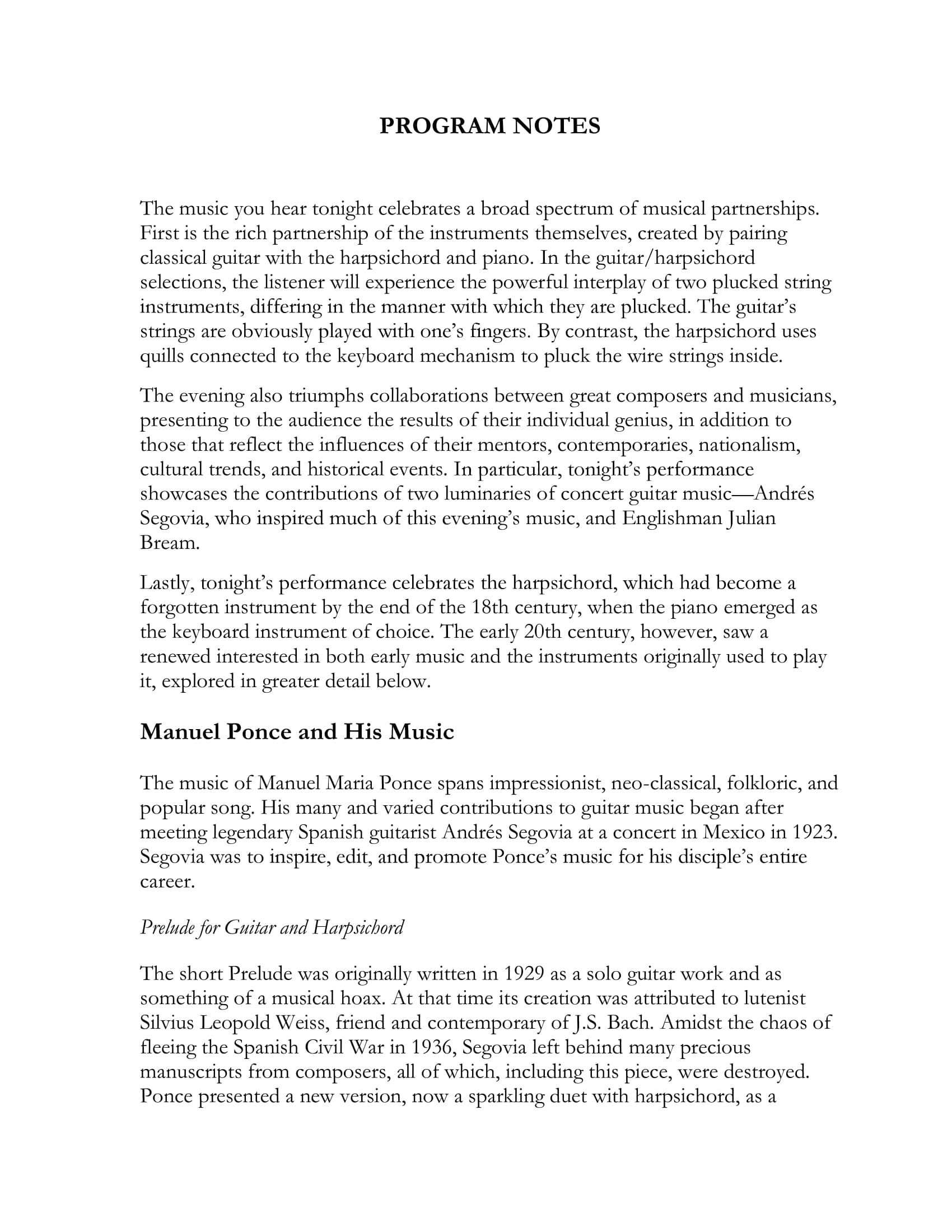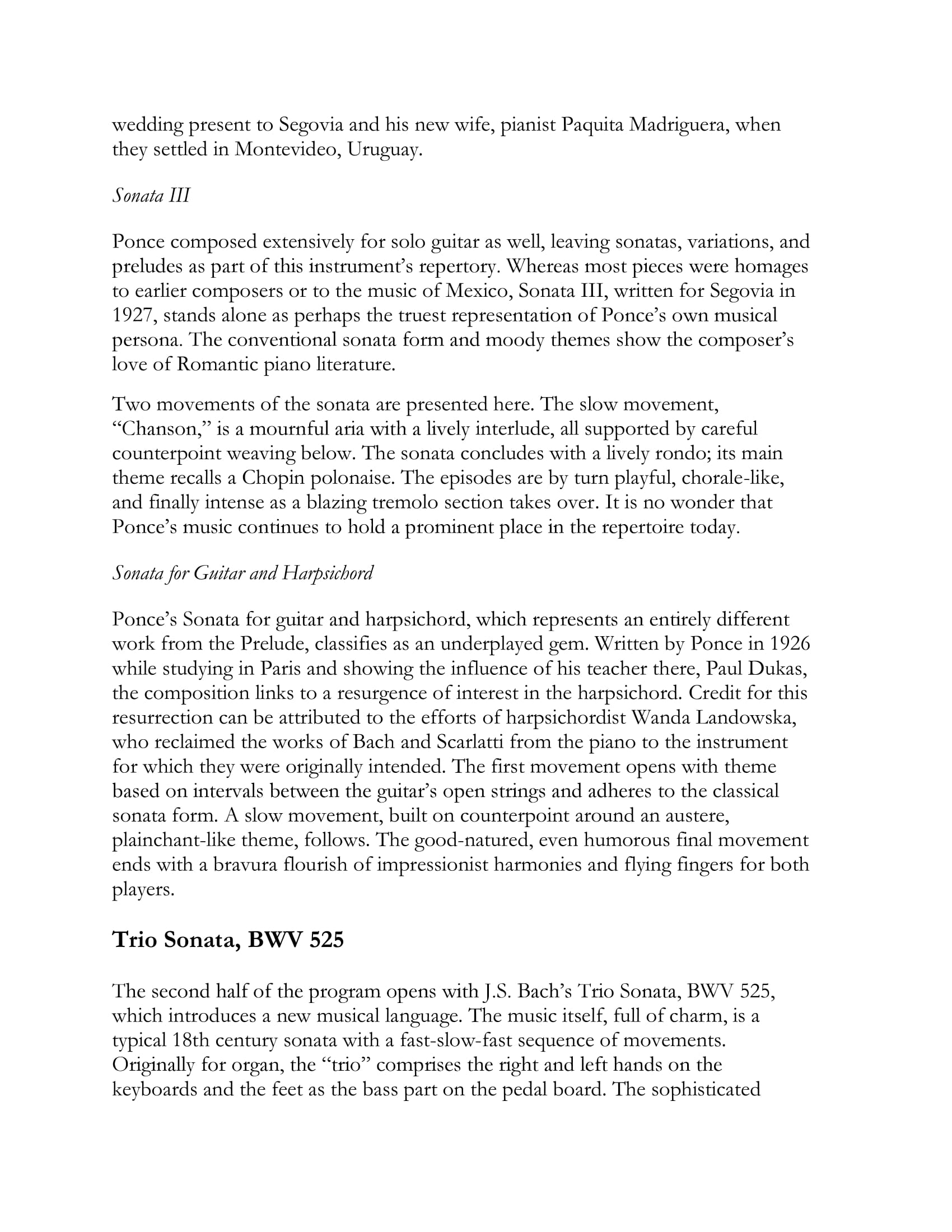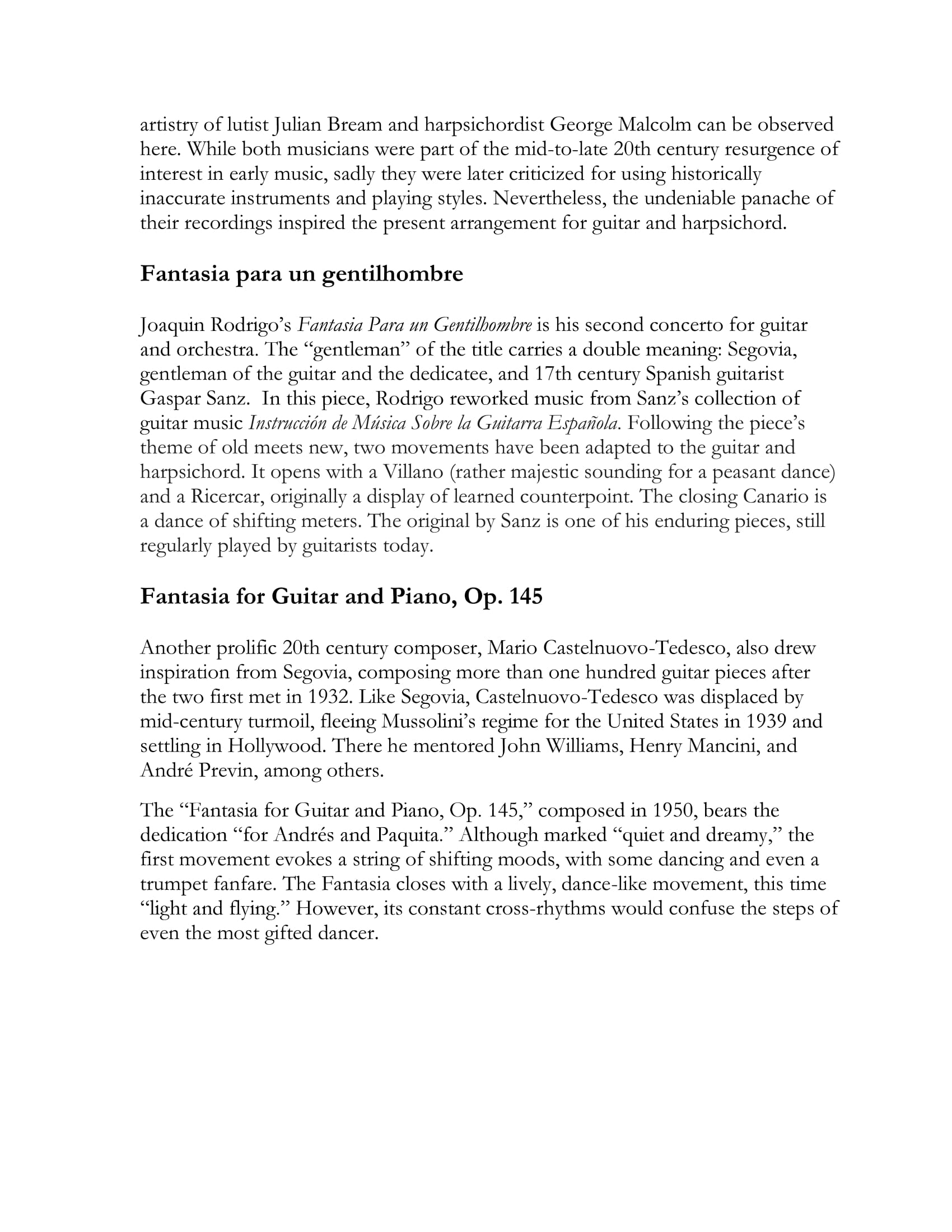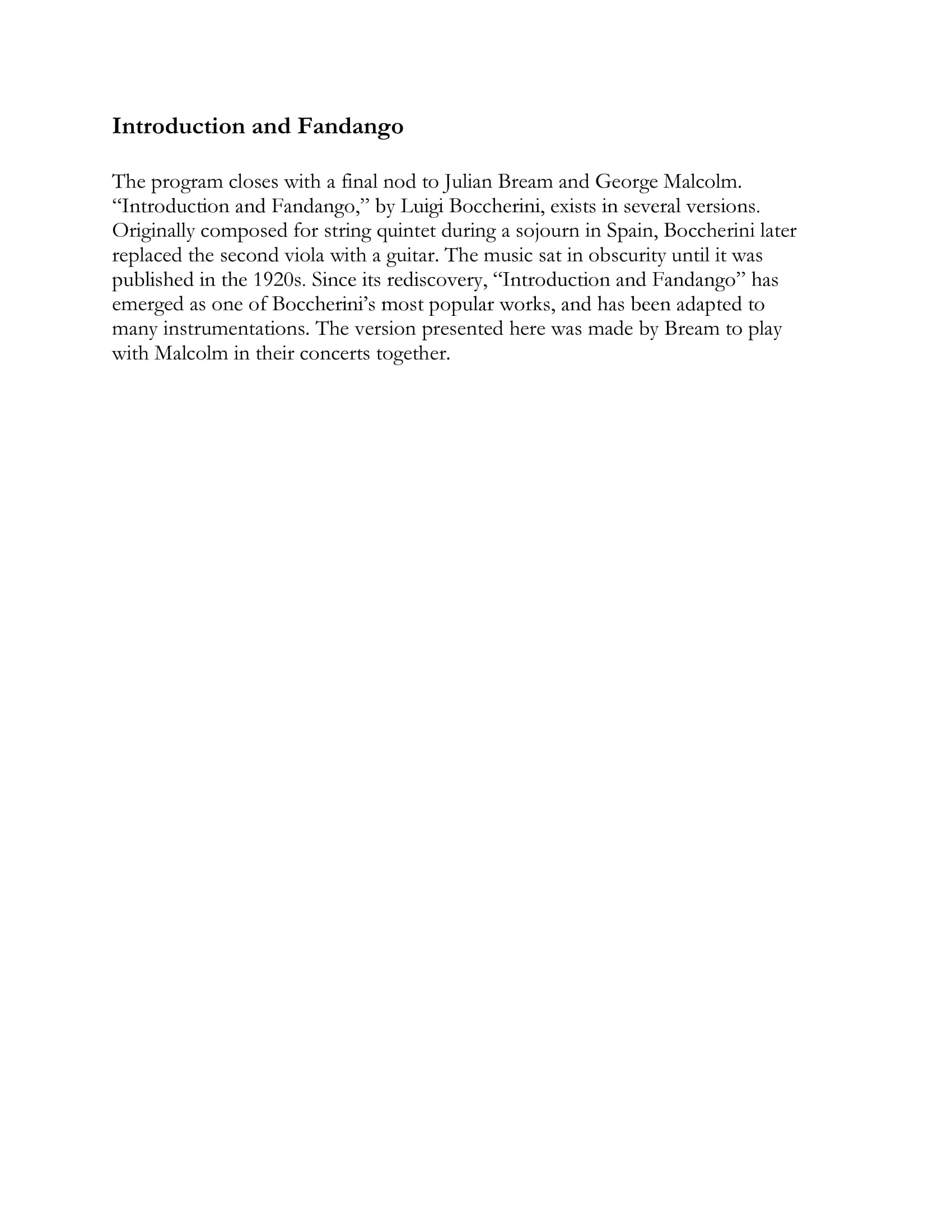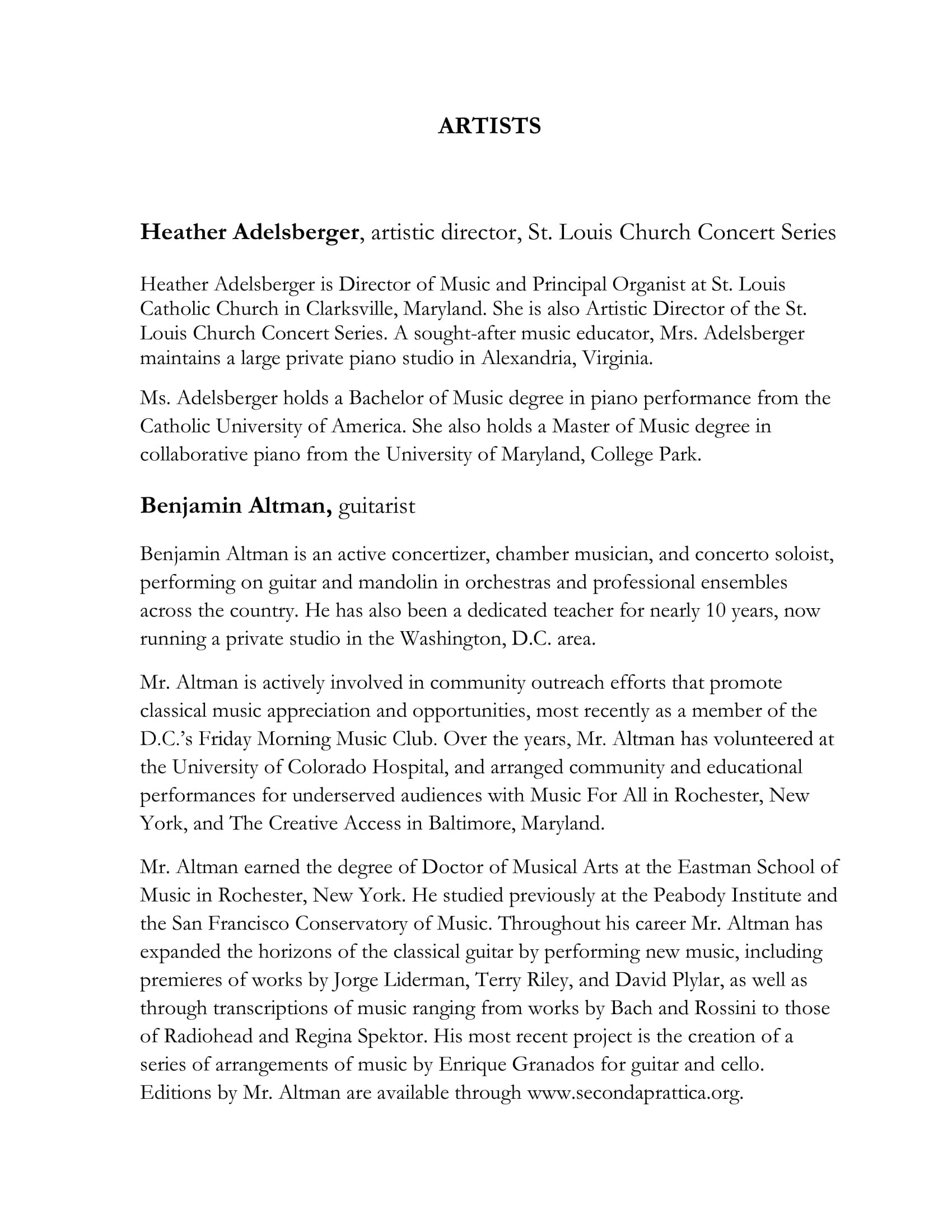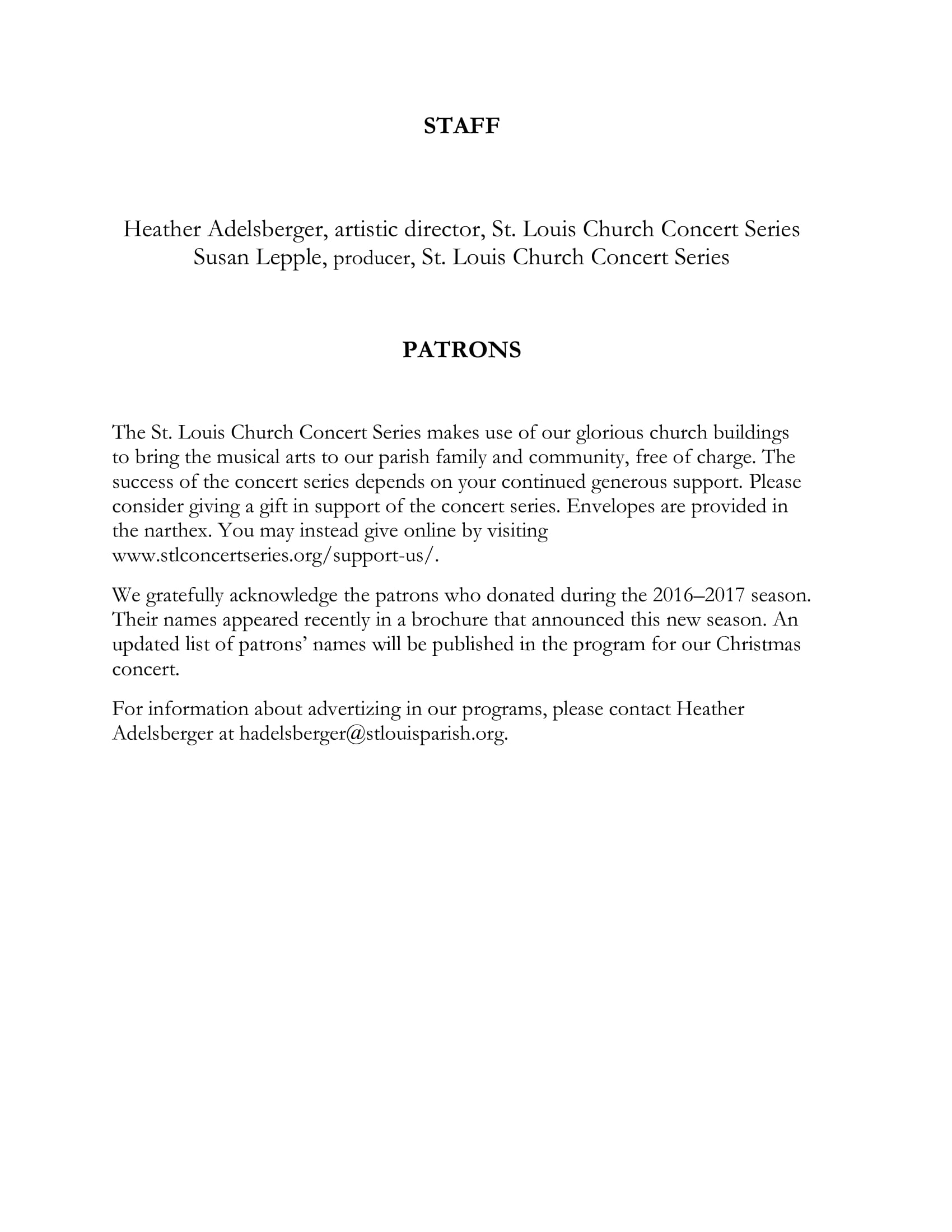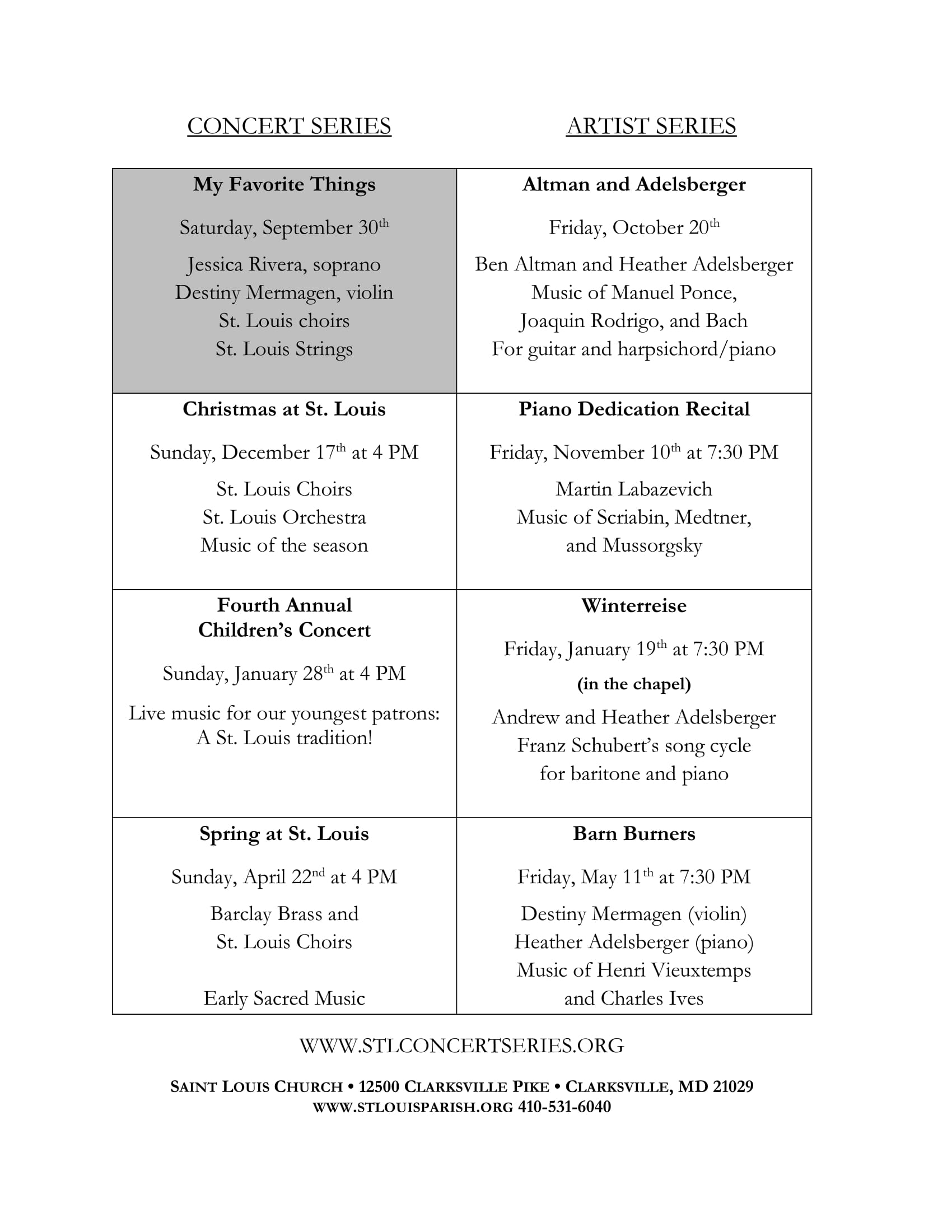Fall Concert
October 20, 2017
Benjamin Altman, guitar
Heather Adelsberger,
piano and harpsichord
Music of Joaquín Rodrigo,
Manuel Ponce,
J. S. Bach,
Mario Castelnuovo-Tedesco,
Luigi Boccherini
The Composers and Their Music
Joaquín Rodrigo
The composer plays the Adagio from his work, Concierto de Aranjuez
Joaquín Rodrigo Vidre, 1st Marquis of the Gardens of Aranjuez (1901–1999), commonly known as Joaquín Rodrigo, was born in Sagunto, Valencia, Spain. He lost his sight at age three after contracting diphtheria. He began to study music at age eight. Rodrigo wrote his compositions in Braille, and they were transcribed for publication.
Although distinguished by having raised the Spanish guitar to dignity as a universal concert instrument and best known for his guitar music, he never mastered the instrument himself.
Adam Kossler plays Chanson from Ponce's Sonata III.
Manuel Ponce
Manuel Ponce (1882-1948) was the first Mexican composer who consistently introduced elements of the folk and popular music of his country to classical composition. He was among the first modern composers to write extensively for the guitar, and, through his association with guitarist Andrés Segovia, he played a key role in the revival of the guitar in classical music.
J. S. Bach
Julian Bream and George Malcolm playing Trio Sonata No. 1
"Sonata No. 1 in Eb Major" is part of a collection Bach put together for his son Wilhelm Friedemann. There was nobody for whom Bach composed and compiled more music – and music that was so personally tailored. When Wilhelm Friedemann was about twenty, his father compiled six organ trio sonatas for him. This supremely Italianate piece is the first of them. (We will hear Ben Altman's arrangement of this sonata, for guitar and harpsichord.)
Fantasia for guitar and piano, Franz Halász-guitar , Débora Halász, piano
Luigi Boccherini
Luigi Boccherini (1743-1805) was an Italian composer and cellist whose music had a courtly style. Boccherini composed several guitar quintets, including the "Fandango", which was influenced by Spanish music. His biographer noted among Boccherini's musical qualities "an astonishing repetitiveness, an affection for extended passages with fascinating textures but virtually no melodic line, an obsession with soft dynamics, a unique ear for sonority, and an unusually rich palette of introverted and mournful affects."
Mario Castelnuovo-Tedesco
Born in Florence, Italy, in 1895 to an old Jewish family, Mario Castelnuovo-Tedesco immigrated to the United States in 1939 to escape the Facist regime. With Jascha Heifitz's help, he won a contract with MGM and became a major film composer. In Hollywood, he taught and influenced many composers, among them Henry Mancini, Jerry Goldsmith, and André Previn. His relationship to Hollywood was ambiguous: later in life he denied the influence that it had on his work, but he also believed that composing for film was a worthy endeavor, an essentially American art form.
Julian Bream and George Malcolm play Introduction and Fandango


